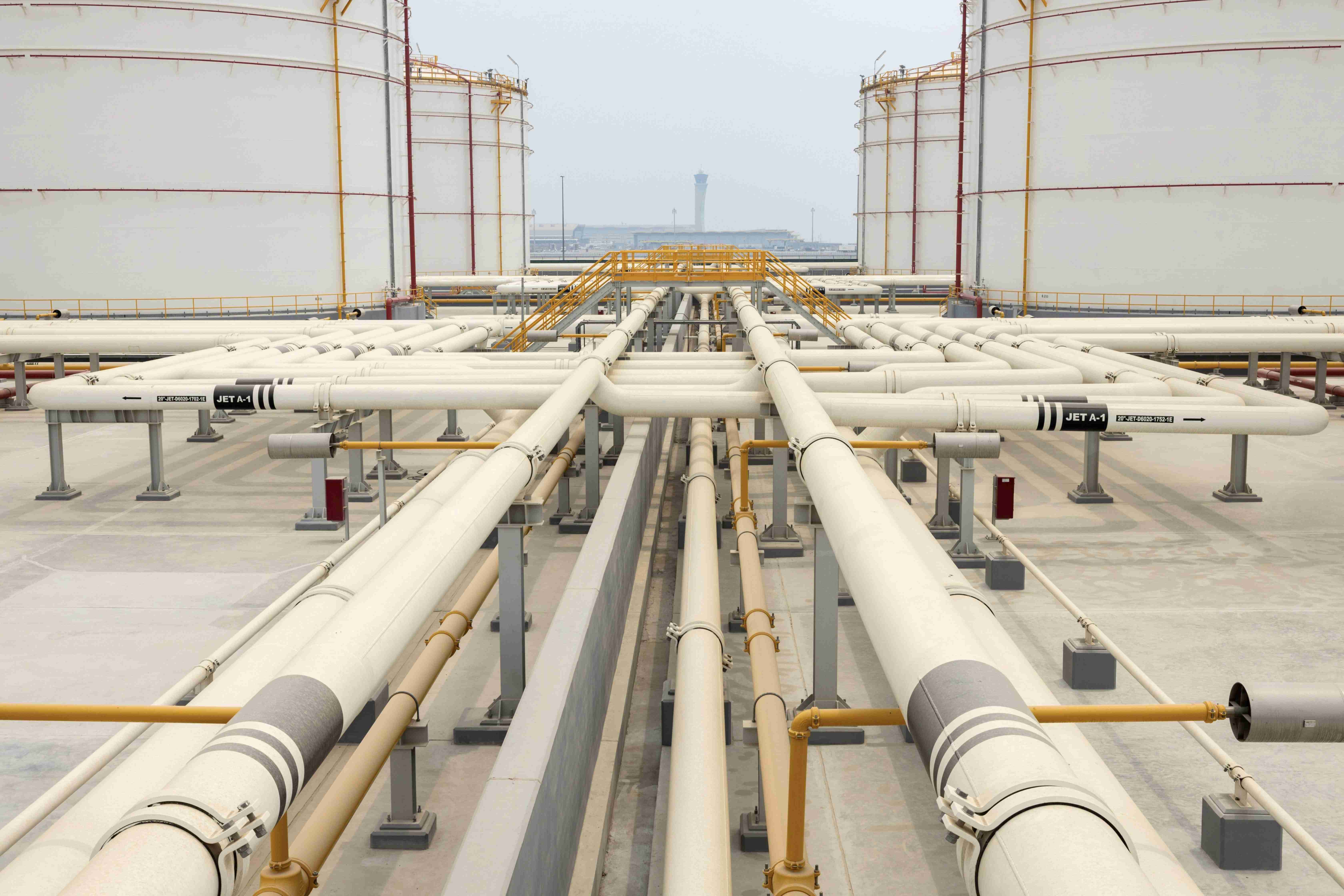Jet A-1 Fuel
Supplied by: Qatar Jet Fuel Company (QJET)

Jet A-1 is a high-performance aviation turbine fuel used globally in turbine-engine aircraft, including commercial airliners, cargo jets, business jets, and military aircraft. At Hamad International Airport (HIA) and Doha International Airport (DIA), Jet A-1 fuel is exclusively supplied and delivered by Qatar Jet Fuel Company (QJET).
The fuel is sourced directly from QatarEnergy—Qatar’s national energy corporation and one of the world’s leading LNG and petroleum producers. The integration of domestic refining with airport-based fueling infrastructure ensures exceptional supply reliability, product traceability, and fuel quality.
Refining and Supply Chain
• Refining Source: Jet A-1 is produced at QatarEnergy’s Ras Laffan and Mesaieed refineries, both operating under ISO standards and environmental compliance frameworks.
• Pipeline Transfer: The refined fuel is transported via dedicated pipelines to QJET’s main fuel depot located within Hamad International Airport.
• Storage and Handling: QJET operates two fully operational fuel farm facilities, equipped with real-time monitoring, water detection systems, and multi-stage filtration.
The vertically integrated fuel supply chain—from QatarEnergy’s refinery to aircraft wing—minimizes contamination risk and ensures full compliance with international aviation fuel handling protocols.
Specifications and Certifications
Jet A-1 fuel supplied by QJet complies with the following internationally recognized specifications:
| Standard | Description |
| DEF STAN 91-091 | UK Ministry of Defence specification for Jet A-1 |
| ASTM D1655 | U.S. standard specification for aviation turbine fuels |
| IATA Guidance Material | Best practices for storage, handling, and quality control of aviation fuel |
| JIG Standards (JIG 1 & 2) | Guidelines for into-plane operations, depot management, and hydrant fueling systems |
Fuel Quality Assurance
QJET follows rigorous quality assurance protocols throughout the fueling process:
• Daily fuel sampling at depot and refueling points
• On-site labratory analysis for density, temperature, water detection, and appearance
• Coalescer filtration and water separation during both loading and dispensing operations
• Filter monitor checks and differential pressure monitoring during into-plane fueling
• Bonding and grounding procedures to prevent static discharge
• Regular tank inspections and preventive maintenance to ensure system integrity
All procedures are audited in accordance with Joint Inspection Group (JIG) standards and the IATA Fuel Quality Pool (IFQP) program.